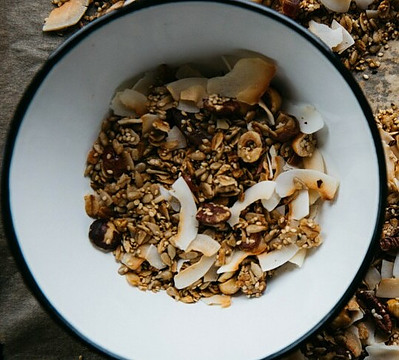
I have learned that my digestive system does more than just process the food I eat. It’s a complex network that affects my metabolism, influencing how I maintain, lose, or gain weight. This section explores how each part of the digestive system contributes to overall weight management.
Gut health is a term I’ve come across often, and it refers to the balance of microorganisms living in my digestive tract. These microorganisms, which include bacteria, viruses, and fungi, play a crucial role in how my body processes food and even in how much energy I expend.
As food travels through my digestive system, it’s broken down into nutrients. This process is fundamental for me to understand as it directly impacts nutrient absorption, which fuels my body. Effective nutrient absorption ensures my body gets what it needs without storing unnecessary fat.
Finally, I consider my body’s signals to tell me I’m hungry or full. It turns out that these signals, driven by hormones, are heavily tied to the health of my digestive system. When my gut is healthy, these signals can help me manage my food intake and thus, my weight.
Nutrition Essentials for Digestive Health and Weight Loss

When it comes to shedding pounds and keeping your digestive system running smoothly, what you put on your plate matters. Think of your body as a finely tuned engine that needs the right kind of fuel to run efficiently. Let me guide you through some nutrition fundamentals that can help manage your weight and enhance your digestion.
First up, fiber is your friend. This indigestible carbohydrate keeps things moving in your digestive tract and can help regulate your weight. Why? Because foods high in fiber, such as fruits, vegetables, and whole grains, keep you full longer and prevent overeating. Plus, they’re usually low in calories and rich in nutrients.
Next, let’s talk about probiotics. These beneficial bacteria that reside in your gut are critical for a healthy digestive system. Including fermented foods like yogurt, kefir, and sauerkraut in your diet can boost these friendly microbes, assisting with digestion and possibly tipping the scales in your favor for weight loss.
Now, while we often hear about the importance of protein, it’s crucial to get the balance right. Lean proteins support muscle repair and growth, which is essential since muscle tissue burns more calories than fat, even at rest. But protein also demands more energy to digest, giving your metabolism a slight nudge.
You can’t overlook the role of healthy fats, either. Contrary to popular belief, fats don’t make you fat. Monounsaturated and polyunsaturated fats found in avocados, nuts, and olive oil can help absorb vitamins and keep your hunger in check.
Don’t forget hydration. Water is not just a thirst-quencher—it supports digestion, helps transport nutrients in the blood, and can aid in curbing appetite. Sometimes, what feels like hunger is dehydration. So before reaching for a snack, try having a glass of water and wait a few minutes. You might find that you were just thirsty. 
For many, the balance and choice of foods can be the tweak needed to not only improve digestive health but also to foster weight loss. But remember, moderation is key, even with healthy foods. Overeating can strain your digestive system, leading to bloating and discomfort.
Lifestyle and Behavioral Changes for Long-term Success

A healthy digestive system doesn’t just rely on what you eat, but also on your overall lifestyle. Regular exercise, for instance, can help speed up your gut’s motility, which is a fancy way of saying it moves things along the digestive tract more effectively. This doesn’t just help with maintaining weight; it also reduces the likelihood of constipation, which anyone will tell you is no fun at all. Now, I’m not suggesting you sign up for a marathon tomorrow, but a brisk daily walk can do wonders.
Stress has a sneaky way of throwing a wrench in your digestive health, and it can lead to weight gain. It’s not only about stress-eating, which I’m sure you’re aware of, but stress also affects how your body digests food and stores fat. Finding ways to manage stress, like through mindfulness or deep breathing exercises, isn’t just good for your mind; it’s crucial for your gut and waistline too.
I can’t stress enough the importance of mindful eating. By paying attention to what and how you’re eating, you can improve your digestion and naturally control portion sizes without feeling like you’re on some sort of strict diet. Chew each bite thoroughly and take your time at the dinner table. It’s about enjoying your food and giving your digestive system the chance to work at its best.
Regular eating schedules do more than just keep your hunger at bay; they set the rhythm for your digestive system. Think of your gut like a well-oiled machine—consistent inputs keep it running smoothly. Skipping meals or irregular eating patterns can mess that all up, leading to issues like bloating and even weight gain over time. Aim for regular, balanced meals to keep both your metabolism and digestion on track.
Overcoming Common Digestive Issues Linked to Weight Gain
I understand the challenges of managing weight, especially when digestive issues are part of the equation. Struggling with conditions like food intolerances or irritable bowel syndrome (IBS) can make weight loss feel like an uphill battle. But it’s not impossible.
To start, identifying foods that trigger digestive discomfort is crucial. Keep a detailed food diary and work with a healthcare provider to pinpoint culprits. Bold efforts like eliminating specific foods or trying a low-FODMAP diet might be necessary for relief and a steadier path toward weight management.
For those with long-standing issues, a comprehensive strategy that may include medication, diet adjustment, and lifestyle interventions can make a significant difference. Digestive disorders like IBS, if not managed well, can contribute to weight fluctuation. Seeking treatment and proper management can lead to better control of both digestion and weight.
Inflammation in the body can be linked to a multitude of health issues, including obesity. Addressing inflammation through a balanced diet rich in anti-inflammatory foods and adequate sleep can foster better digestive health and assist in weight management. Remember, tackling inflammation can be key to unlocking a healthier weight and overall well-being. 
But when is it time to seek professional help? If repeated attempts at dietary adjustments yield little to no improvement, it’s time to find a gastroenterologist or a registered dietitian. They provide professional insights into your unique health profile, creating tailored management plans that could be the missing link in your journey to healthy weight loss.
In conclusion
Weight management and digestive health are closely connected. and the road to improvement is sometimes complex. Empower yourself with knowledge and seek the proper support. Your body is a sophisticated system. Sometimes it just needs the right guidance so you can achieve your health goals.

More people need to be aware of gut health and its impact on our daily lives! One of the best things I’ve found for my gut health is the 18 hour fast…. by passing the 16 hour mark, your body starts fighting the build up inflammation. It works really great for me!
It’s fantastic that you’ve found a method that works well for your gut health! Intermittent fasting, like the 18-hour fast you mentioned, can indeed have various benefits, including reducing inflammation. It’s always inspiring to hear about personal experiences that positively impact health.
It’s true that to maintain your weight your gut plays a huge role. A few years ago, I learned about the right types of foods to eat to maintain weight. It is a food method that has been used for years and where it’s important in the morning to take warm water before you eat anything because then it helps your digestive system. Additionally, if you add lemon to it that is useful. Also in the morning it’s good to have a huge breakfast then less throughout the day because that’s the best way to maintain your weight. Do you think that it is an individual’s responsibility to understand what they need to eat or are people just influenced by diets?
I enjoyed this article and I think when it comes to the body, I am always learning something new. I think that there are so many ways we can maintain our weight but I think that people don’t think about their gut health. It’s also difficult to control individuals, and what they eat but I think that teaching people from an early age what is good for them will help in improving the health of many people worldwide.
Hi Michelle
I’m glad you enjoyed the article and learned something new. You are right that gut health is an important factor for weight management and overall well-being